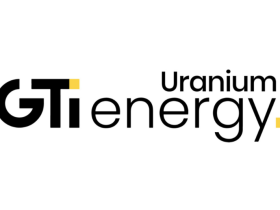The S&P/TSX Venture Composite Index (INDEXTSI:JX) saw a slight gain of 1.83 points last week, closing at 532.33.
Statistics Canada reported inflation numbers for October this past Tuesday (November 21). The consumer price index rose 3.1 percent year-on-year, down from 3.8 percent in September. The drop was largely due to lower gas prices, which provided relief to drivers; however, prices for rent, travel and services all increased during the period.
The US labor market remains strong despite the Federal Reserve’s attempts to cool the economy with high interest rates. According to a Department of Labor report released last Wednesday (November 22), unemployment claims for the week ended November 19 fell by 24,000 to a seasonally adjusted 209,000, erasing gains from the previous week. The drop surprised economists polled by Reuters, who had expected claims to stay steady at 226,000.
Economic resilience has benefited the overall stock market, but which mining and energy stocks on the TSXV have seen the biggest gains in the past week? Read on to find out which companies made the list.
1. Adamera Minerals (TSXV:ADZ)
Weekly gain: 120 percent; market cap: C$12.62 million; current share price: C$0.055
Adamera Minerals is a gold exploration company focused on the discovery of mineral resources near past-producing mines. Its key projects are in Washington, US. The company’s flagship Buckthorn 2.0 project is located near Kinross Gold’s (TSX:K,NYSE:KGC) Buckthorn gold mine, which produced 1.3 million ounces of gold before it was shut down in 2017.
Shares of Adamera rose last week after the company said on November 16 that it has completed two drill holes at Buckthorn 2.0, both of which encountered thick sulfide zones. ‘The discovery of a thick body of non-outcropping disseminated sulfides coincident with the geophysics and only 1.5 kilometers from the former Buckhorn Gold Mine is potentially very significant,’ Adamera President and CEO Mark Kolebaba said in the release.
2. Cantex Mine Development (TSXV:CD)
Weekly gain: 50 percent; market cap: C$19.88 million; current share price: C$0.315
Cantex Mine Development is an exploration and development company that is focused on its North Rackla project in Canada’s Yukon. To date, the company has conducted 60,000 meters of drilling at the site, defining high-grade silver-lead-zinc-germanium mineralization over 2.3 kilometres of strike length and more than 700 metres depth.
Cantex was on the rise last week after completing the final hole of its fall drill program at North Rackla. It said on Wednesday that it intersected 89.25 meters of strong mineralization and is now awaiting further results.
In the same announcement, Cantex reported the closure of the final tranche of a private placement, saying it received C$2.9 million. The company will use proceeds in part to fund North Rackla.
3. Luminex Resources (TSXV:LR)
Weekly gain: 50 percent; market cap: C$39.13 million; current share price: C$0.24
Explorer and developer Luminex Resources has gold and copper projects in Ecuador. Its flagship property is the Condor project, which has indicated and inferred resources of 6.6 million ounces of gold and 20.9 million ounces of silver.
Luminex’s share price went up this past week after Tuesday’s news that the company has agreed to be acquired by Adventus Mining (TSXV:ADZN,OTCQX:ADVZF). The combined entity will hold 13 projects for a total of 130,000 hectares in Ecuador, including Adventus’ El Domo copper-gold project. The transaction is expected to be completed in January 2024.
4. American Creek Resources (TSXV:AMK)
Weekly gain: 33.33 percent; market cap: C$59.78 million; current share price: C$0.14
American Creek Resources is an exploration company with a 20 percent interest in the Treaty Creek project located in the Golden Triangle in BC, Canada. The remainder of the project is owned by Tudor Gold (TSXV:TUD,OTC Pink:TDRRF), which holds 60 percent, and Teuton Resources (TSXV:TUO,OTCQB:TEUTF), which has 20 percent.
Shares of American Creek gained 33 percent this past week following Wednesday’s news that Treaty Creek partner Tudor Gold has encountered what Tudor Gold President Ken Konklin called ‘surprisingly high gold values’ from a step-out hole at the property’s Goldstorm deposit. One drill hole includes an intercept of 12 meters grading 9.78 grams per metric ton gold, 1.35 grams per metric ton silver and 0.23 percent copper.
5. Wolfden Resources (TSXV:WLF)
Weekly gain: 33.33 percent; market cap: C$19.78 million; current share price: C$0.12
Wolfden Resources is an exploration and development company focused on its Pickett Mountain volcanogenic massive sulfide project located in Penobscot County in Northern Maine, US. It sits within the Northern Maine volcanic belt portion of the Gander Terrane, which hosts numerous high-grade zinc, lead, copper and silver sulfide deposits.
The latest press release from the company was a project update on July 19, when Wolfden announced the completion of the steps necessary for a public hearing as part of a rezoning application in order to begin construction at the site. Even though there hasn’t been a recent update, shares of Wolfden gained 33 percent this past week.
FAQs for TSXV stocks
What is the difference between the TSX and TSXV?
The TSX, or Toronto Stock Exchange, is used by senior companies with larger market caps, while the TSXV, or TSX Venture Exchange, is used by smaller-cap companies. Companies listed on the TSXV can graduate to the senior exchange.
How many companies are listed on the TSXV?
As of September 2023, there were 1,713 companies listed on the TSXV, 953 of which were mining companies. Comparatively, the TSX was home to 1,789 companies, with 190 of those being mining companies.
Together the TSX and TSXV host around 40 percent of the world’s public mining companies.
How much does it cost to list on the TSXV?
There are a variety of different fees that companies must pay to list on the TSXV, and according to the exchange, they can vary based on the transaction’s nature and complexity. The listing fee alone will most likely cost between C$10,000 to C$70,000. Accounting and auditing fees could rack up between C$25,000 and C$100,000, while legal fees are expected to be over C$75,000 and an underwriters’ commission may hit up to 12 percent.
The exchange lists a handful of other fees and expenses companies can expect, including but not limited to security commission and transfer agency fees, investor relations costs and director and officer liability insurance.
These are all just for the initial listing, of course. There are ongoing expenses once companies are trading, such as sustaining fees and additional listing fees, plus the costs associated with filing regular reports.
How do you trade on the TSXV?
Investors can trade on the TSXV the way they would trade stocks on any exchange. This means they can use a stock broker or an individual investment account to buy and sell shares of TSXV-listed companies during the exchange’s trading hours.
Data for this 5 Top Weekly TSXV Performers article was retrieved on Friday (November 17) at 9:00am PST using TradingView’s stock screener. Only companies with market capitalizations greater than C$10 million prior to the week’s gains are included. Companies within the non-energy minerals and energy minerals are considered.
Article by Dean Belder; FAQs by Lauren Kelly.
Securities Disclosure: I, Dean Belder, hold no direct investment interest in any company mentioned in this article.
Securities Disclosure: I, Lauren Kelly, hold no direct investment interest in any company mentioned in this article.






